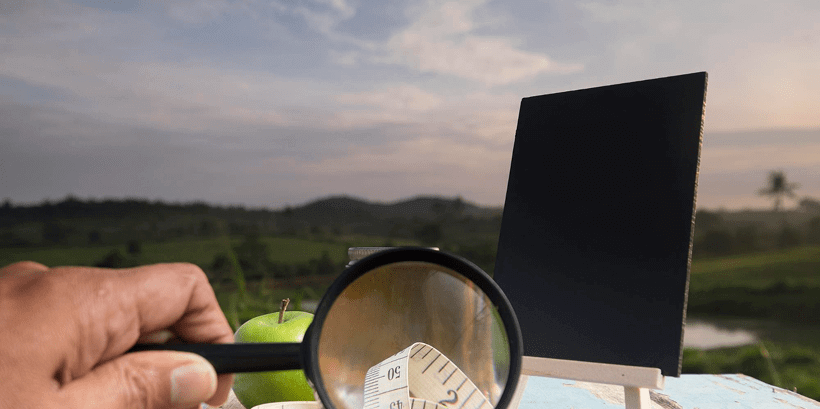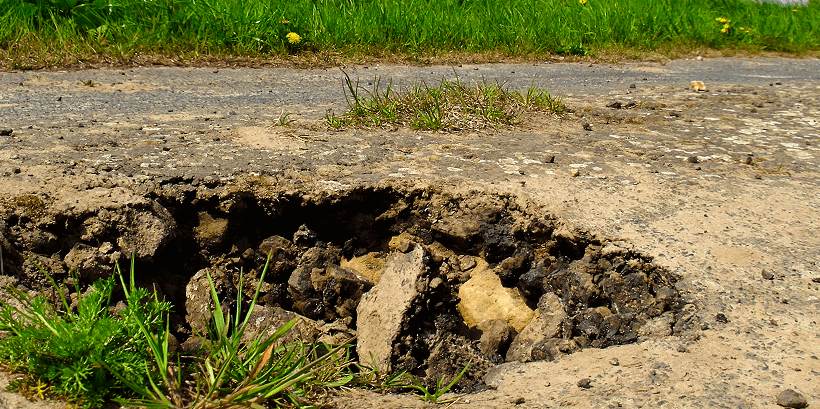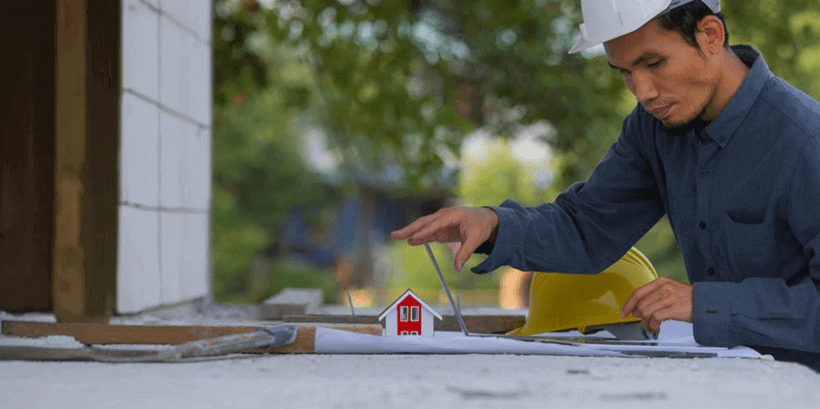How to Buy Cheap Land in the U.S. Without a Realtor
Reading Time: 9 minutes
Buying land can feel like a big and very difficult process, especially if you think you can take help from any property agent. But you can buy land without an agent too. Researching and planning it on your own can save a lot of money and you can get control of every step. It could be a tough task at the very first time but with the right information you will get it easier than you think.
Here with this guide, you will get help to understand how to find land, what to check, how to talk to the seller and how to close the deal without any confusion.
Table of Contents
- Why Consider Without a Realtor?
- Guidelines for First-Time Land Buyers
- Steps to Buy Land Without a Realtor
- Common Pitfalls to Avoid During the Buying Process
- Is Buying Land Without a Realtor a Smart Decision?
- Final Thoughts
- FAQs
Why Consider Without a Realtor?
Most of the time people hire real estate agents to help them with buying land. But here are some good reasons why you should choose to buy without any agent:
Save Money: Property agents charge a lot of fees, which can be too high to bear. If you will not be using any agent, you can save that money which you can use for your land or development.
Talk Directly to Seller: When you talk directly to the owner, you can have words very clearly and with transparency like payment in small parts or fixing the price to suit both of you and your budget.
Full Control: You make all your decisions on your own. You can control whatever process you want to choose fast or slow to deal with everything with the owner.
If you like taking care of all the things yourself and want to save money buying land without any real estate agent will always be a good choice.

Guidelines for First-Time Land Buyers
If you are investing in land for the first time, below are some of the tips which will protect you and will make sure that you won’t get stuck:
Learn Local Rules: Read about land buying laws and the process in the area you want as per the zone. Every place is different and as for that place the price could vary.
Use Trusted Websites: Look on government websites or renowned land selling websites to avoid scams and fraudulent transactions.
Take Your Time: Don’t rush for any decision. Visit multiple locations and lands before deciding which one to buy.
Hire a Lawyer and Surveyor: Even if you don’t use any real estate agent, these experts check legal papers and mark land boundaries.
Double Check Everything: Verify the land size, its boundaries, owner details and if you can easily reach them.
Know Your Budget: Decide how much you can pay or can arrange and find if you can get owner financing (pay in parts).
Mark all the Details: Keep all the copies of your conversations in writing and papers which could be claimed at any point.

Steps to Buy Land Without a Realtor
Step 1: Define Your Objectives
Decide and finalize before searching, what is your plan?
House Land: Land near roads and utilities ready to build a home or cabin with easy access.
Farmland: Land for farming, growing crops or to use for pet animals. Some may have water access or mineral rich soil for future benefits.
Fun Land: Land for hunting, camping or weekend trips is usually cheaper but may not have roads or water. So, I need to have deep research before finalizing.
Business Land: Land to run a shop or a business for investment needs good zoning.
When you know this, you will not waste time on unsuitable lands.
Step 2 – Where Can You Find Cheap Land?
Without an agent you should be smart enough and look in different places before finalizing:
For Sale by Owner (FSBO) websites: Sellers list their land directly on sites like Zillow, LandWatch and YNS Land.
Local Classifieds: Facebook Marketplace, Craigslist and community boards in your area.
Government Auctions: Land which has unpaid taxes or reacquired land sold at cheaper prices.
Talk to Locals: Most of the time you can get the best land deals from people you know or local groups.
Keep a list of places and owners you contact.

Step 3 – Check What Is Important Before Buying
When buying land independently, conducting thorough due diligence is critical. Some things to know before buying land include:
Zoning: As per the government are you allowed to live, build or farm on that land? Check with the local offices and officials.
Legal Access: Is there a legal road or way to come and go on that particular land or area? No road means no use.
Utilities: Are you having proper facilities of water, power, sewage or internet nearby? If not, find out how much it costs to get them first.
Environment: Is the land flood-protected? Is there protected forest or pollution?
Title Search: Use a trusted title company to make sure that the seller is the only correct owner who owns it fully and no debts are attached.
Without knowing these, you could lose your money or may face big problems later.
Step 4: Questions to Ask When Buying Land
Direct communication with the seller means you should prepare a list of important questions:
- Q. Why are you selling?
- Q. How long has it been on sale?
- Q. Are there any unpaid taxes or disputes?
- Q. Has the land been recently measured?
- Q. Do you offer payment in instalments?
- Q. Are there any restrictions on land use?
Honest answers help you decide better.

Step 5 – Negotiating and Closing Your Land Purchase
After you like the land and have done all the checks it is time to bargain. Use recent sale prices to fix a fair offer. Ask for payment options like instalment and seller help with papers.
When closing hire:
- A lawyer to check contracts.
- Surveyor to confirm land boundaries.
- A title company to legally transfer the deed.
These experts will help you with future troubles.
Common Pitfalls to Avoid During the Buying Process
Buying land independently can be rewarding but comes with risks. Avoid these common mistakes:
Skipping Due Diligence: Failing to verify zoning, access, or title can cause major problems down the line.
Ignoring Access Rights: Buying land without confirmed legal access can leave you with unusable property.
Underestimating Costs: Land may be cheap, but installation of utilities or road improvements can add up quickly.
Overpaying Due to Lack of Market Knowledge: Research comparable sales to avoid paying above market value.
Not Consulting Professionals: Avoid handling legal and survey matters alone; mistakes here can be costly.
Rushing the Purchase: Pressure tactics from sellers or impatience can lead to bad decisions.

Is Buying Land Without a Realtor a Smart Decision?
By choosing to buy property without a realtor, you gain more control and can access unique deals, including:
- You can save a lot on commissions.
- I can find unique land opportunities.
- Talk directly with the sellers and buy cheap land for sale.
Learn important skills for your future purchases and investments. If you work smartly and stay alert you will succeed for sure.

Final Thoughts
Buying land without an investor is possible and rewarding too. Take your time, ask as many questions as you can and check everything very carefully. With some work and help from professionals where needed you can find a better land option which will be the right choice for you whether for a peaceful home or a farm or a great investment.
Whether you’re a first-time buyer or seasoned investor, APXN is here to help you find and secure the perfect property—
11 Factors to Consider Before Building Your Dream Home
Reading Time: 10 minutes
Start Smart: Plan Before You Build
There’s something deeply personal about building your own home. It’s more than walls and a roof it’s where your future unfolds. But in 2025, the path to building your dream home comes with more twists than ever. Material costs are unpredictable, zoning laws are evolving, and new sustainability policies are changing how we think about residential construction.
This year, the U.S. rolled out several green housing incentives, encouraging builders to go solar, conserve water, and cut carbon. Smart tech is reshaping home designs. And climate concerns floods, wildfires, and heatwaves are forcing homeowners to think long-term.
Before you break ground or hire a builder, here are 11 things to consider while building a house that can help you avoid headaches, save money, and future-proof your investment.
Table of Contents
- 1. Choose the Right Location
- 2. Evaluate the Land Type and Topography
- 3. Understand Zoning Laws and Regulations
- 4. Check Utility and Infrastructure Availability
- 5. Verify Legal Access and Roadways
- 6. Budget Planning and Hidden Costs
- 7. Lifestyle and Future Planning
- 8. Research Environmental and Climate Factors
- 9. Choose a Reliable Builder or Contractor
- 10. Verify Land Title and Ownership
- 11. Estimate Timeline and Prepare for Delays
- Bonus Tip: Build with Flexibility in Mind
- Conclusion
- FAQs
1. Choose the Right Location
Location still reigns supreme. But in 2025, there’s more to it than just picking a nice neighbourhood. Is the area growing? Will there be new highways or industrial zones nearby? Does it lie in a disaster-prone region?
Families with kids still prioritize schools and safety, but more buyers are now considering commute patterns, walkability, access to public transport, and even remote work hubs. Those exploring land for sale should check local economic forecasts and community development plans before committing.
This is one of the core factors to consider when buying a home, you’re not just choosing a place to live, you’re choosing a lifestyle.

2. Evaluate the Land Type and Topography
All land is not build-ready, no matter how good the view looks.
Check if the plot is sloped, rocky, flood-prone, or poorly drained. A full land survey and geotechnical report can tell you if you’ll need excavation, foundation support, or even soil treatment. These unexpected steps can blow your budget if you’re not prepared.
If you’re navigating a land buying guide or thinking of raw land investment, this is where the homework matters. Types of Land to Buy vary greatly, and flat isn’t always best sometimes, a slight slope offers better drainage or solar exposure for future off-grid solutions.
3. Understand Zoning Laws and Regulations
This year, zoning rules in several U.S. states were updated to accommodate growing populations and climate goals. From California’s ADU-friendly laws to Texas’ floodplain re-zoning, staying informed is critical.
New land zoning and regulations also impact whether you can add a guest house, workshop, or short-term rental unit later. What’s allowed in one zone may be illegal in another. Ignorance can cost you months in delays or worse, a halt order.
If you’re stuck comparing deed vs. title, here’s a simple rule: the deed transfers ownership, the title shows who legally owns the land. Before you build, confirm both are clean.

4. Check Utility and Infrastructure Availability
This isn’t just about running water and lights it’s about timing, cost, and accessibility. Is there a sewer connection? Or will you need a septic tank? Can you get high-speed internet, or will you rely on satellite?
In 2025, rural builds are on the rise, but utility access isn’t guaranteed. Many owners are turning to off-grid power solutions solar panels with battery storage, propane for heat, even rainwater collection systems.
If you’re considering off grid solutions, factor in rebates. The 2025 Resilient Homes Program offers federal support for energy-efficient, self-sufficient homes in rural zones. That’s a major win for budget-conscious, eco-minded builders.
5. Verify Legal Access and Roadways
It’s shocking how many new land buyers skip this. Just because there’s a dirt path doesn’t mean you can legally use it.
Is your land landlocked? Are there recorded easements? Is the road public, private, or shared? If the answer isn’t clear, get a real estate attorney involved before closing.
This is a crucial step, especially when you’re buying cheap land in rural zones. Access disputes can drag out for years, and without legal access, you might not even get a building permit.

6. Budget Planning and Hidden Costs
In 2025, budgeting for a home build isn’t just about bricks and mortar. Permits, inspections, soil testing, landscaping, well drilling, and temporary housing can add tens of thousands to your total spend.
If you’re just learning how to buy land, speak with locals or contractors about hidden fees common in that county. Some areas now charge “climate adaptation” fees for fire-safe building materials or water conservation systems.
And don’t forget the value of owner financing some sellers are flexible and allow staged payments, reducing upfront capital needs for land purchases.
7. Lifestyle and Future Planning
Do you work from home? Planning to start a family? Thinking about aging in place?
In 2025, modern homes are expected to adapt with us multi-use rooms, separate entrances for rental income, or designs for wheelchair access down the line. When considering the requirements to build a house, don’t just look at the present. Think ahead.
Also, buyers are leaning into buying land as an investment. A flexible, well-designed home can increase resale value and appeal to a wider buyer pool in the future.

8. Research Environmental and Climate Factors
Whether you’re building in wildfire-prone California or hurricane-hit Florida, environmental risks are now impossible to ignore.
Local governments in 2025 have updated their hazard maps and building code requirements. Some areas now mandate fire-resistant roofing, raised foundations, or even water storage tanks. And if you’re planning an eco-home, materials and designs matter more than ever.
Want to save on utility bills long-term? Use green roofing, passive solar design, and off-grid energy solutions that qualify for federal tax credits under the 2025 Green Foundations Initiative.
9. Choose a Reliable Builder or Contractor
A builder can make or break your home.
Before you sign a contract, dig deep past projects, license validity, customer reviews, and dispute history. In 2025, many states now offer digital contractor vetting portals. Use them.
Watch out for red flags: vague contracts, unusually low bids, or asking for large cash advances. Investing in land only works if the build adds value, not stress.

10. Verify Land Title and Ownership
Don’t assume the seller has a clear title.
Hire a title company to check for liens, easements, back taxes, or disputes. It’s worth every penny. Understanding the deed vs title real estate dynamic is especially critical when buying from family, auctions, or private sellers.
Land ownership comes with responsibilities and potential surprises if paperwork isn’t clear. A clean title today saves legal headaches tomorrow.
11. Estimate Timeline and Prepare for Delays
Even with the best planning, timelines shift.
Labor shortages, backordered materials, and weather can delay your build by weeks or months. A typical home in 2025 still takes 6 to 12 months, but rural builds or custom eco-homes might stretch longer.
Have contingency funds. Stay flexible. Communicate often with your builder. It’s not about avoiding problems it’s about managing them smartly.

Bonus Tip: Build with Flexibility in Mind
Imagine your future. Will you want to convert that home office into a nursery? Add a guesthouse? Turn the garage into an Airbnb?
Design with change in mind. Add extra electrical outlets, run internet to unused rooms, choose modular layouts. And don’t overlook smart systems thermostats, water sensors, solar controls that connect to your phone and help you save over time.
Building in 2025 isn’t just about now; it’s about setting up for everything to come.
Conclusion
Building your dream home is a milestone. But in today’s world, it takes more than a vision it takes strategy. From understanding zoning and questions to ask when buying land to navigating legal access, energy systems, and timelines, every decision matters.
If you’re ready to take the leap, make sure you’re prepared and check land buying guide properly. It’s not just about building walls it’s about building peace of mind.

